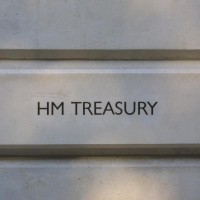
In the Treasury Committee’s Future Regulatory Framework of Financial Services report, it said there was no “compelling evidence” to suggest this was necessary.
It said: “The independence of regulators to be free from political interference is one of the key aspects of UK financial services regulation, and it is, arguably, one of the reasons why the UK is a world-leading financial centre.
“Regulators must continue to be free to choose what they share with the Treasury in this respect.”
It also stated there was no need for the creation of an independent body to scrutinise regulatory proposals. However, it suggested there could be a role for “activity-based principles” allowing the government to instruct regulators at a micro level on how to approach specific types of business.
To engage the industry further, the report advised all regulatory proposals to be put out for consultation and recommended that select Parliamentary committees could have an input as well.
It also said Parliament had a role in ensuring principles set by the Financial Conduct Authority (FCA) were not undermined by decisions made by the Financial Ombudsman.
The report said: “Decisions by the Financial Ombudsman Service set precedents and form a critical part of the consumer conduct-focussed element of the regulatory environment for financial services in the UK.
“Given that the aim of the Treasury’s consultation is to create a more coherent framework for how financial services are regulated, the Treasury should consider as part of this consultation how the decision-making processes of the Financial Ombudsman Service would interact with the future regulatory framework for the FCA.”
The committee agrees with the Treasury that the body of EU financial services rules brought in during the process of leaving the EU should be moved into the regulators’ rule books. If the rules are kept in statute, it could require Parliament to amend or pass new legislation every time that the regulators wish to make changes which would take up too many resources.
The report is the first phase of the committee’s inquiry into how financial services should regulated under the UK government, following the UK’s departure from the EU.
Mel Stride MP, chair of the Treasury Committee, said: “As the UK forges a new post-Brexit future, the government’s approach to financial services regulation will be critical. It needs to get the balance right between effective scrutiny and ensuring that the regime is nimble and light touch where possible.
“It is not a good use of Parliamentary time for MPs to be required to amend or pass new legislation every time regulators wish to make changes. Our regulators are well-equipped and should play a key role in designing the rules they enforce.
He added: “Retaining the independence of our financial services regulators from political interference is essential to ensuring the UK remains a world-leading financial centre.”















